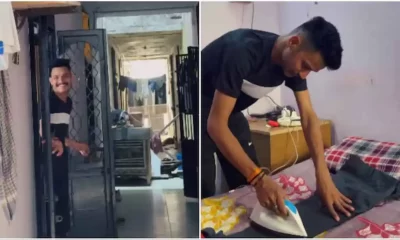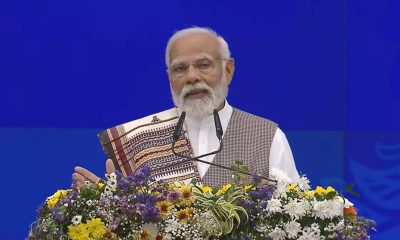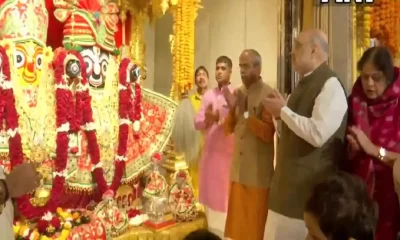Top Stories
Gujarat Police arrest 8 people for putting up anti-Modi posters in Ahmedabad, state AAP chief Isudan Gadhvi accuses BJP of dictatorship
The Ahmedabad Police registered a case against the accused and said the posters were put up in the city in an unauthorized manner.

Gujarat Police on Friday arrested eight people for putting up objectionable posters against Prime Minister Narendra Modi in different areas of Ahmedabad. The accused put up ‘Modi Hatao, Desh Bachao’ posters, a day after the Aam Aadmi Party (AAP) launched a nationwide campaign against PM Modi.
The Ahmedabad Police registered a case against the accused and said the posters were put up in the city in an unauthorized manner.
Following the arrest, Gujarat AAP chief Isudan Gadhvi accused the Bharatiya Janata Party (BJP) of dictatorship and claimed that the arrests are a sign that the party is scared.
Gadhvi said, Look at the dictatorship of BJP! Aam Aadmi Party workers in Gujarat have been jailed under various sections of the IPC in connection with the posters of Modi Hatao, Desh Bachao! If this is not fear of Modi and the BJP, then what else? Try as hard as you want! Aam Aadmi Party workers will fight, he added.
Read Also: Karnataka High Court disqualifies JD(S) MLA for electoral malpractice
This comes a week after thousands of posters were put on the walls in the national capital targetting PM Modi. This created a massive uproar in the capital which led to the arrest of six people. Not only, this, the police also registered 49 FIRs in this case.
The Delhi Police stated that the posters were made for vandalizing government property. Delhi Chief Minister Arvind Kejriwal responded to the arrests and claimed that even the British did not arrest anyone who displayed anti-British posters during the independence movement.
He said no FIRs or action were taken by the Britishers against freedom fighters who used to put up posters against them. Bhagat Singh had pasted a lot of posters during the British rule, and not a single FIR was lodged against him, he said.
The AAP’s Modi Hatao, Desh Bachao campaign was launched in 11 languages across the country. Besides English, Hindi and Urdu, posters have been released in Gujarati, Punjabi, Telugu, Bengali, Oriya, Kannada, Malayalam and Marathi as well.
Gujarat: Minor girl hangs herself after family refuses to let her attend tuition party
Karnataka High Court disqualifies JD(S) MLA for electoral malpractice
2024 Lok Sabha Elections
Election Commission books BJP MP Tejasvi Surya for seeking votes in the name of religion
Tejasvi Surya was booked by the Karnataka chief electoral officer for seeking votes in the name of religion in a video posted on X.
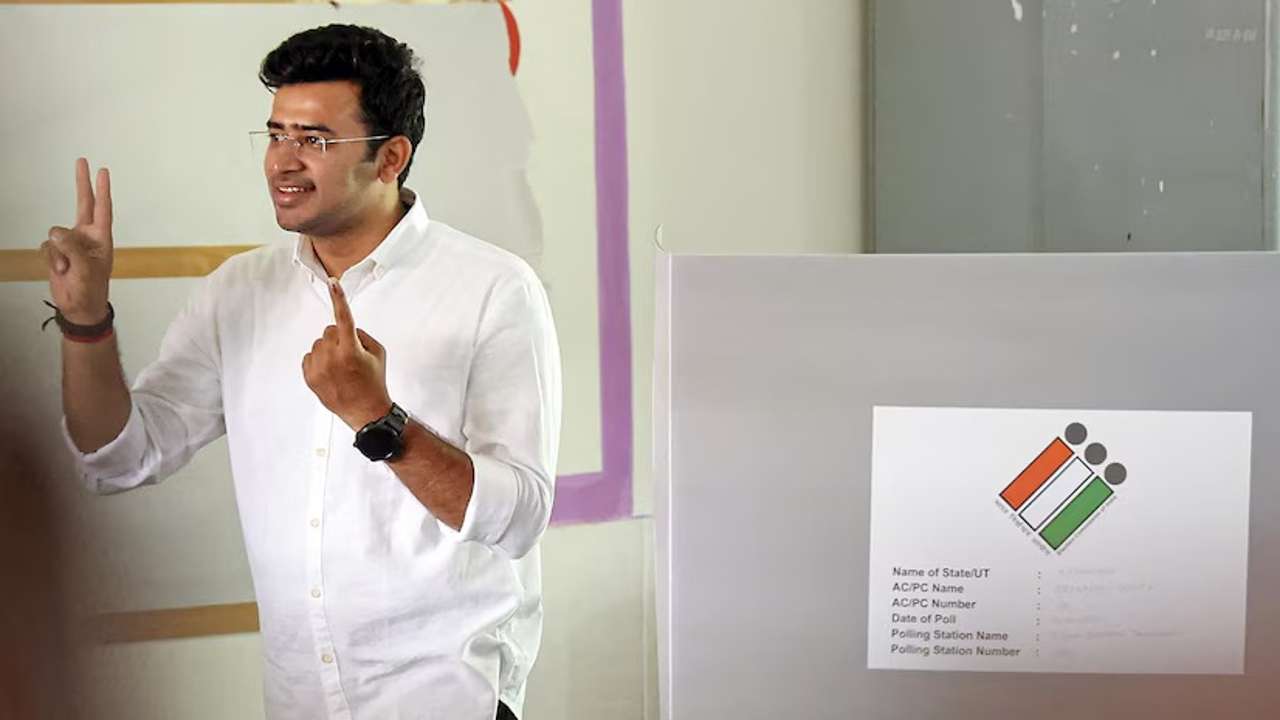
Bengaluru South sitting MP and BJP’s candidate from the same seat Tejasvi Surya was reported to the chief election officer of Karnataka for uploading a video on X in which he asked for votes based on religion.
Karnataka Chief Election Officer tweeted on Friday during polling in the crucial seat where Tejasvi Surya MP is running against Congress’s Sowmya Reddy. He tweeted, case is booked against Tejasvi Surya MP and Candidate of Bengaluru South PC on 25.04.24 at Jayanagar PS u/s 123(3) for posting a video in ‘X’ handle and soliciting votes on the ground of religion.
Tejasvi urged people to cast votes and utilize their right to do so on multiple occasions. He released the last video at 2:00 PM, mentioning Ram Mandir in addition to border security and Article 370 in his plea to make the most of the final four hours of voting.
Earlier, Tejasvi gave an 80%–20% parallel to implore BJP supporters to turn out in large numbers at the polls. Only 20% of the BJP’s 80% voter base actually turned up to vote. C ongress’ voters are 20 % but they come out and vote 80%. He added, in most circumstances, this is the actual situation at the polls. Telling the impportance of vote he said that every votes counts. He also urged to vote and added if you don’t, then 20% of Congress will undoubtedly be doing so.
Meanwhile, Karnataka recorded 50.93% voter turnout till 3pm, with Bengaluru South recording 40.77%. Up till 3 pm, Udupi Chikmagalur had the highest turnout (57.49%), Hassan had the next highest percentage at 55.92%, Dakshina Kannada at 58.76%, Chitradurga at 52.14%, Tumkur at 56.62%, Mandya at 57.44%, Mysore at 53.55%, Chamarajanagar at 54.82%, Bangalore Rural at 49.62%, Bangalore North at 41.12%, Bangalore Central at 40.10%, Bangalore South at 40.775, Chikkballapur 55.90%, and Kolar 54.66%.
India News
Salman Khan house firing case: NIA interrogates arrested shooters Sagar Pal, Vicky Gupta for three hours
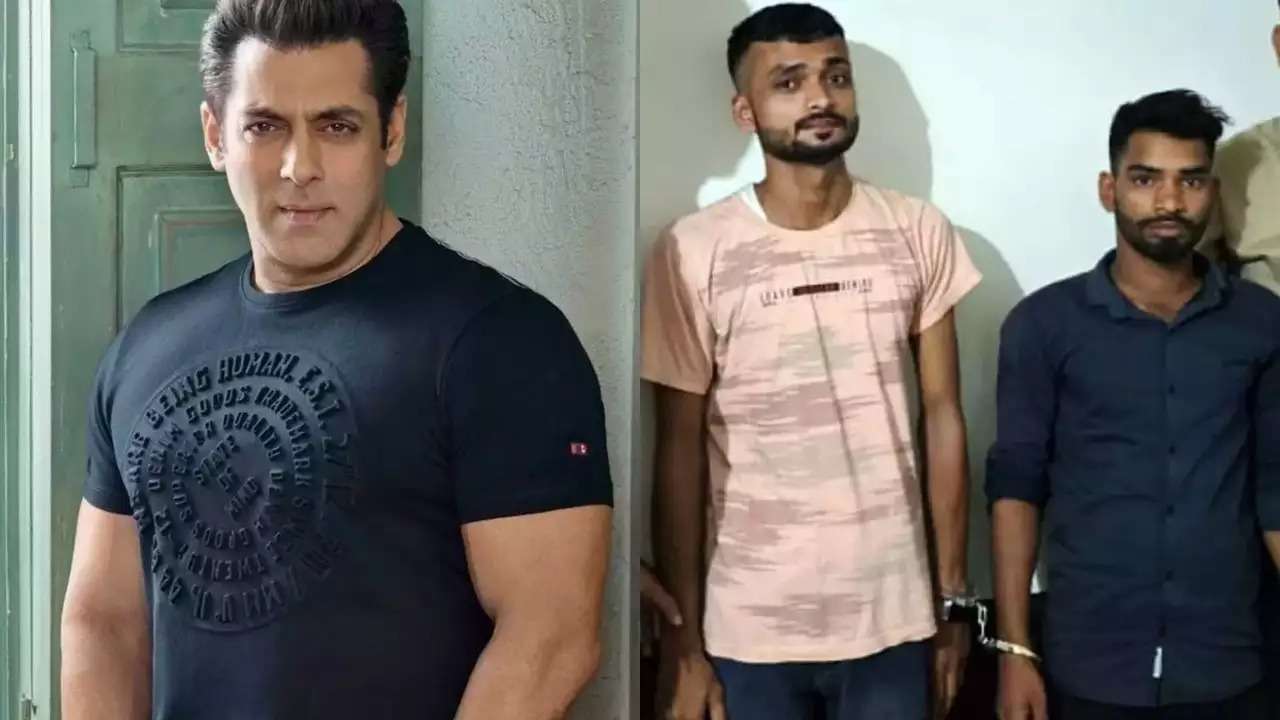
The investigation into the shocking firing incident that took place outside Salman Khan’s house on April 14 keeps bringing new updates with every passing day. In this case, Sagar Pal and Vicky Gupta, the two suspected shooters, have already been taken into custody.
The two shooters have reportedly been questioned by the National Investigation Agency (NIA), according to a new development. Every day that goes by, more information is revealed about the inquiry into the shocking firing incident that happened outside Salman Khan’s house on April 14. Sagar Pal and Vicky Gupta, the two accused shooters, are being held in custody after their first arrests.
It was recently discovered that the two shooters were questioned by the National Investigation Agency (NIA).
NIA has reportedly begun questioning Sagar Pal and Vicky Gupta, who were detained a few days ago for firing openly outside Salman Khan’s Galaxy Apartments in Mumbai, according to a recent update posted on their X (Twitter) account. NIA has interrogated shooters Vicky Gupta and Sagar Pal, arrested in the firing case, the tweet said.
According to the reports, two Punjabi residents were taken into custody by the Mumbai Crime Branch yesterday on suspicion of being involved in the recent shooting incident outside the house of Bollywood actor Salman Khan.
The two men, Sonu Subhash Chander and Anuj Thapan, provided guns to Sagar Pal and Vicky Gupta, the shooters, according to information released by the Mumbai Crime Branch. It was also reported that they had communication with the Bishnoi gang. For those who don’t know, hours after the incident, Anmol Bishnoi, the brother of gangster Lawrence Bishnoi, allegedly took credit for the firing in a Facebook post.
The shooters’ custody has been extended by Mumbai’s Esplanade Court until April 29.
Meanwhile, on the workfront Salman Khan was last seen in Tiger 3 alongside Katrina Kaif.
2024 Lok Sabha Elections
PM Modi calls for high voter turnout in second phase of Lok Sabha elections 2024, says your vote is your voice
Prime Minister Narendra Modi urges citizens to participate in record numbers during the second phase of polling for the Lok Sabha Elections 2024.
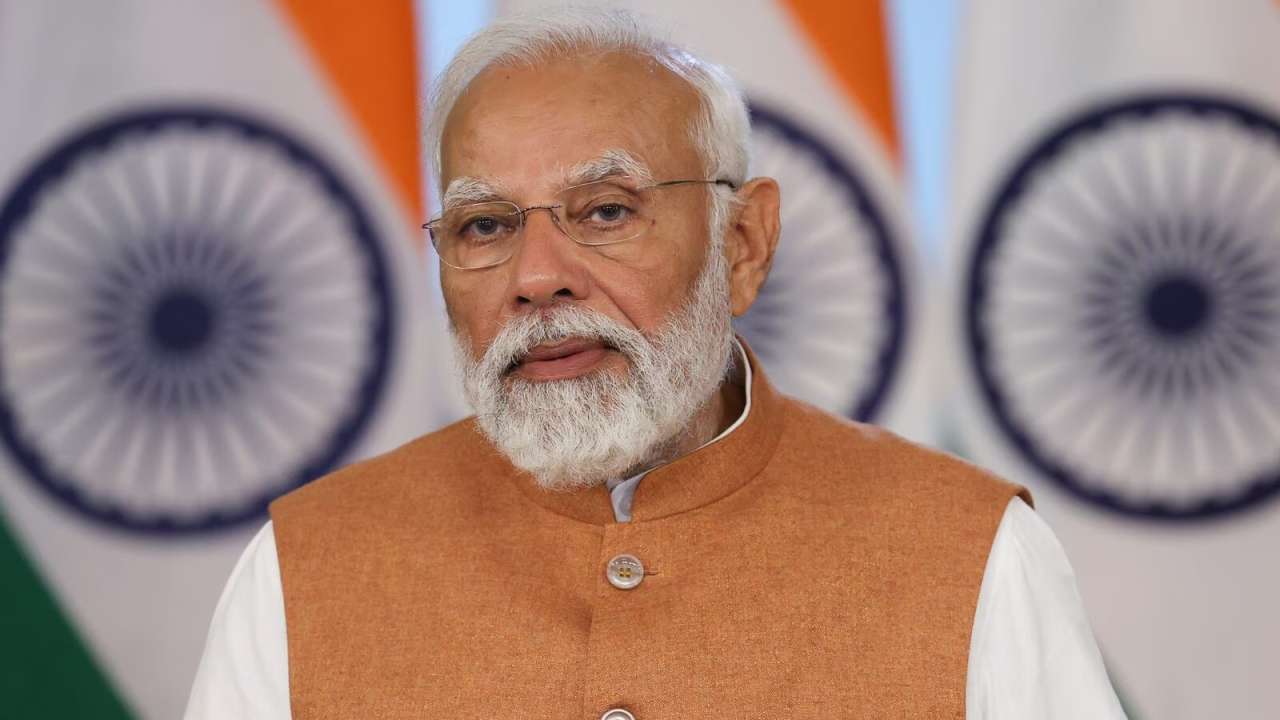
Prime Minister Narendra Modi took to social media as the second phase of voting for the Lok Sabha Elections of 2024 got underway across the country to encourage voters to cast votes in huge numbers. PM Modi emphasized in his speech the value of voting in preserving democracy and notably urged women and young people to cast votes.
Taking to social media X, formerly Twitter, PM Modi wrote, urging everyone in constituencies to participate in record numbers in today’s second phase of the Lok Sabha elections. He said our democracy is strengthened by high voter turnout. He especially urged female and youth voters to cast votes in large numbers. Your vote is your voice, he added.
It is important to remember that 88 Lok Sabha constituencies—spread among 13 states and Union Territories—are presently holding polls. Twenty seats in Kerala, fourteen in Karnataka, thirteen in Rajasthan, eight in Uttar Pradesh and Maharashtra, six in Madhya Pradesh, five in Assam and Bihar, three in Chhattisgarh and West Bengal, and one in each of Tripura, Jammu & Kashmir, and Manipur are currently up for election. Notably, the untimely death of a Bahujan Samaj Party (BSP) candidate has resulted in the Madhya Pradesh constituency of Betul being spared from voting on April 26.
Meanwhile, Chief Election Commissioner Rajiv Kumar emphasized the thorough planning that has taken place over the previous two years and reassured the public of careful security measures at every voting place. They have been preparing for the last two years, he said. At each booth, the arrangements are ready. Everything has been prepared for the voters, including fans and drinking water. Voters must turn out to cast their votes. Safety has been considered. There is zero information available anywhere regarding violence. However, there will be forces at every booth.
-
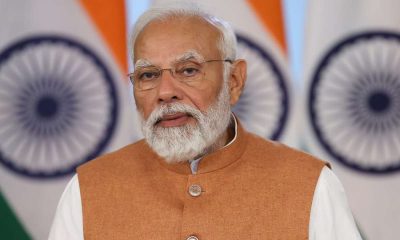
 2024 Lok Sabha Elections18 hours ago
2024 Lok Sabha Elections18 hours agoPM Modi calls for high voter turnout in second phase of Lok Sabha elections 2024, says your vote is your voice
-
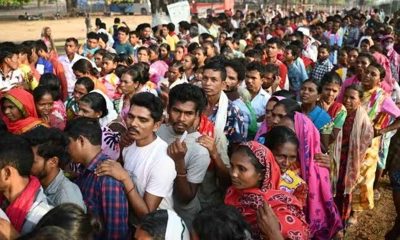
 2024 Lok Sabha Elections12 hours ago
2024 Lok Sabha Elections12 hours agoLok Sabha election 2024: Nearly 50% voter turnout recorded in second phase till 3 pm
-

 India News17 hours ago
India News17 hours agoSalman Khan house firing case: NIA interrogates arrested shooters Sagar Pal, Vicky Gupta for three hours
-

 2024 Lok Sabha Elections11 hours ago
2024 Lok Sabha Elections11 hours agoElection Commission books BJP MP Tejasvi Surya for seeking votes in the name of religion
-

 2024 Lok Sabha Elections15 hours ago
2024 Lok Sabha Elections15 hours agoLok Sabha elections 2024: 102-year-old man walks to polling booth to cast his vote in Jammu

